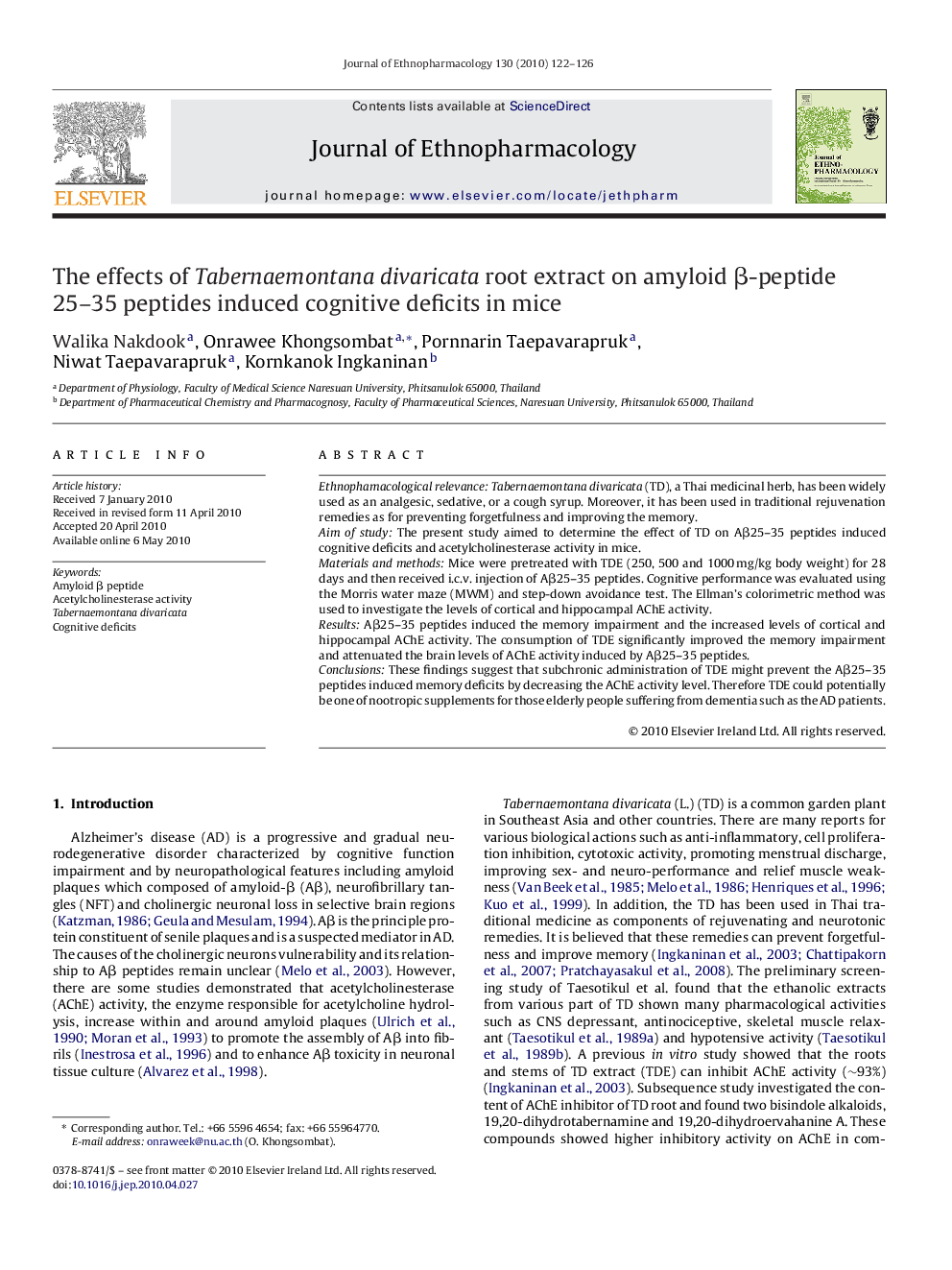| Article ID | Journal | Published Year | Pages | File Type |
|---|---|---|---|---|
| 2546436 | Journal of Ethnopharmacology | 2010 | 5 Pages |
Ethnophamacological relevanceTabernaemontana divaricata (TD), a Thai medicinal herb, has been widely used as an analgesic, sedative, or a cough syrup. Moreover, it has been used in traditional rejuvenation remedies as for preventing forgetfulness and improving the memory.Aim of studyThe present study aimed to determine the effect of TD on Aβ25–35 peptides induced cognitive deficits and acetylcholinesterase activity in mice.Materials and methodsMice were pretreated with TDE (250, 500 and 1000 mg/kg body weight) for 28 days and then received i.c.v. injection of Aβ25–35 peptides. Cognitive performance was evaluated using the Morris water maze (MWM) and step-down avoidance test. The Ellman's colorimetric method was used to investigate the levels of cortical and hippocampal AChE activity.ResultsAβ25–35 peptides induced the memory impairment and the increased levels of cortical and hippocampal AChE activity. The consumption of TDE significantly improved the memory impairment and attenuated the brain levels of AChE activity induced by Aβ25–35 peptides.ConclusionsThese findings suggest that subchronic administration of TDE might prevent the Aβ25–35 peptides induced memory deficits by decreasing the AChE activity level. Therefore TDE could potentially be one of nootropic supplements for those elderly people suffering from dementia such as the AD patients.
Graphical abstractThe consumption of TDE significantly improved the memory impairment induced by Aβ25–35 peptides.Figure optionsDownload full-size imageDownload as PowerPoint slide
